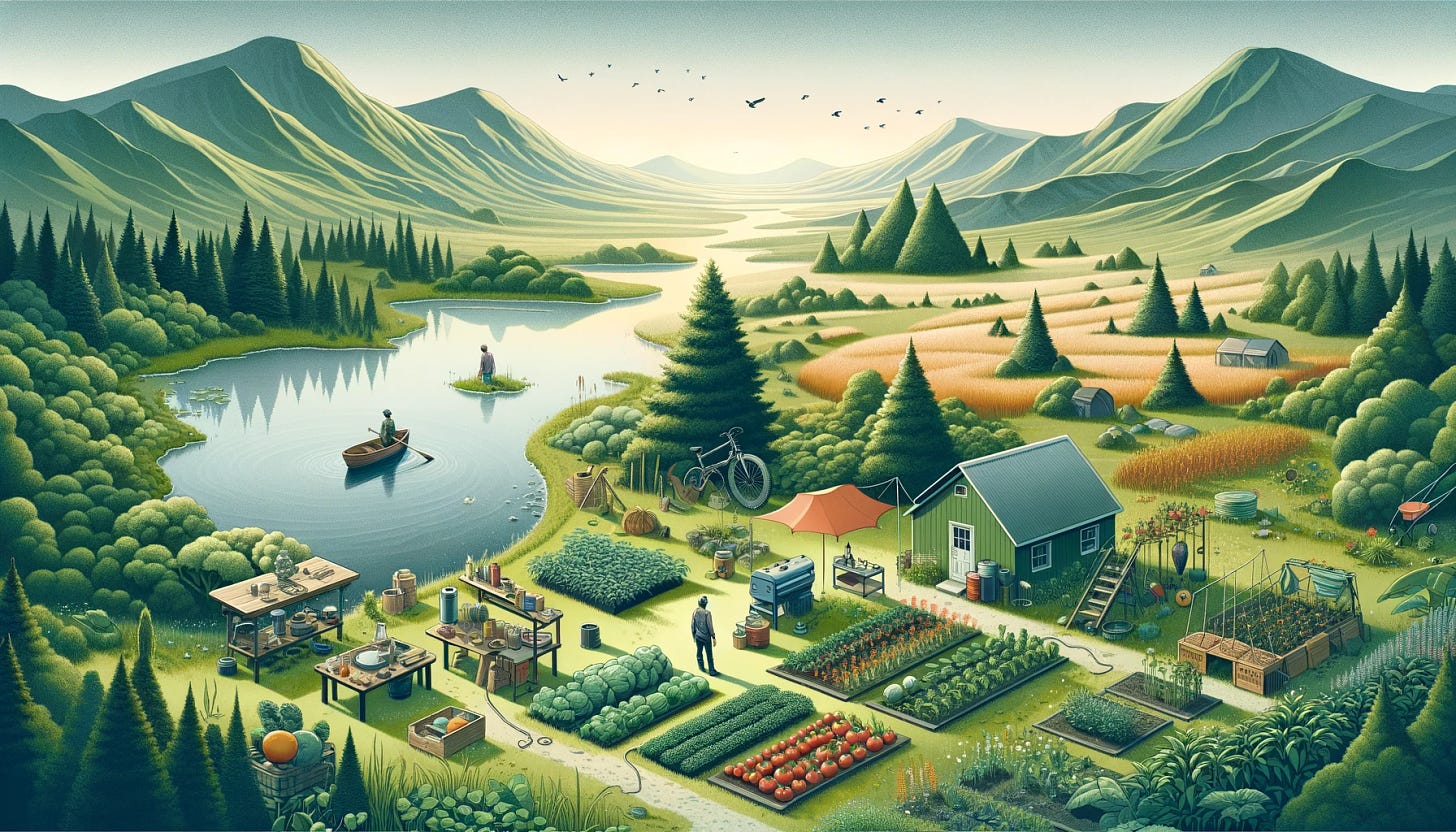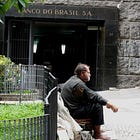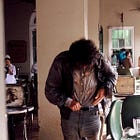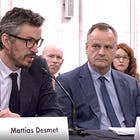The distinct danger of being naive
Don't assume it'll all be OK or that you alone will be able to evade the consequences of collapse.
The writer and commentator
is known for his discussions on global economic trends, the decline of the middle class, and the future of economies around the world.In a post yesterday, he presented a somber forecast of what he says is “the most likely trajectory of the global financial system, based on history and the dynamics of human systems.”
He describes the unsustainable expansion of credit, which has far outpaced real production and consumption and has been supported by inflated asset price bubbles that will inevitably burst.
Most importantly, Smith warns against the naively optimistic idea that it’s possible to completely evade the consequences of economic collapse by holding hard money assets or offshoring wealth. He argues that emergency measures and increased surveillance will likely thwart such attempts.
As the bottom 99.5% feel the squeeze, their rage at those at the top not paying their fair share will rise exponentially, and the political pressure on authorities to go after the hyper-wealthy will become too intense to ignore. Many of those trying to save the system will have already had enough of coddled billionaires, bankers and financier grifters.
Another conviction that will be revealed as naive is the faith that the rules will stay unchanged, allowing us to hoard our stash and emerge unscathed to scoop up the bargains offered by the less prescient. History is again rather definitive: the rules will change overnight, and continue changing, as needed. One "emergency measure" after another will be imposed and become normalized.
The Great Unraveling has already begun, friends, and Smith is right to warn against being naive. Attempting to evade the consequences, Smith says, is foolish. One way or another, we’ll all be hit.
He says a better option might be to “go gray”:
Blend in, look average: post photos of kittens and puppies, complain about the cost of groceries, drive a look-alike vehicle, live in an unremarkable house, render unto Caesar that which is Caesar's, forget about emerging as one of the rich who evaded Caesar and get on with enjoying one's private life focused on well-being, and as difficult as it may be, work up a little gratitude for those carrying the responsibility for keeping the system from collapsing. A system that degrades but coheres is a far better place to live than a system that completely collapses.
One could argue that Smith’s idea of planning for a degraded versus fully collapsed future is, in itself, naive. It’s certainly about as optimistic as we would allow ourselves to get. But perhaps it makes planning a little bit easier.
Think of a time when every single system we take for granted today is gone completely. Overnight. How will you cope? For many, the thought is overwhelming.
It may be easier, therefore, to think of it in phases. What if you still had electricity, but only for a portion of the day? What if you could still buy food in stores, but not all the things you like to eat? What if you learned to repair things instead of throwing them out when they break? This phased-in approach is easier to conceptualize.
Writing in his book “Self-Reliance in the 21st Century,” Smith implores the reader to find ways to reduce dependence on complex systems we have no control over by: “1) consuming less and eliminating waste and planned obsolescence; 2) learning how to do more for ourselves and others so we need less from the government and global supply chains; 3) relocalizing our personal supply chains by assembling trusted personal networks of local producers and 4) becoming a producer in addition to being a consumer.”
He makes it more concrete with the following examples:
By becoming healthy, we need fewer (ideally zero) medications that are sourced from afar and we’re less dependent on costly medical interventions.
By becoming a producer in a local network, we reduce the number of links in our supply chain from many to a few. If we trade for food from local producers, there are only a few links in that supply chain. If we grow some of our own food, there are zero links in that supply chain.
By eliminating waste, we reduce our dependency on distant sources of food, energy and water—what I call the FEW essentials. If we eliminate 40% of our consumption, we’ve reduced our dependency on supply chains we don’t control by 40%.
By buying durable products that we can repair ourselves, we reduce our dependency on the global system of planned obsolescence and waste that I call the Landfill Economy. The less we need and the less we waste, the lower our dependency on fragile supply chains and the greater our self-reliance.
By moving to a location near fresh water, food and energy, we reduce our exposure to the risks of long supply chains breaking down.
History is replete with examples of naivety — whether in underestimating threats, misjudging human nature, or failing to adapt to changing circumstances — leading to dramatic and often catastrophic outcomes. The leaders who accepted the “gift” of the Trojan horse, for example, or the French bourgeoisie who initially supported the revolution only to be caught off-guard by the Reign of Terror.
As Smith says, “it gives me no joy to suggest ‘please don't be naive,’ but a realistic appraisal of what happens when things unravel suggests there are few limits on ‘emergency measures’ anywhere on the planet and it's best to plan accordingly and focus on what we can control rather than what we can't control.”








If we go grey instead of trying to support the freedom fighters and spread truth, don't we just end up helping the totalatarians and watching people go to the "gas chamber" and huddle in our own perceived safety. Talk about repeating history. I don't agree with this "option".
You just need to decide what you think is the most likely and plan for that.
How about the idea of a total societal collapse.
First of all, I have no faith in the whole escape to another part of the world idea. The world is not a nice safe place. Other countries will have no problem deporting foreigners, or worse. Locals will have no compunction against taking from those who have no part of the fabric of the location. The governments will have little incentive to protect them or their assets other than to confiscate them for themselves.
Without the rule of law, it will be difficult to find someone to trust who accept some hard goods in trade that you could trust rather than taking anything of value from you and sending you on your way (at best). If you do find someone to trust, any perceived notion of the original purchase price of those assets are meaningless. Assuming you negotiate some type of trade, how are you going to keep the exchanged goods safe to return with them?
Faced with real shortages, no amount of stockpiling will suffice long term. You have a farm or garden, you cannot guard it indefinitely. You can't leave any livestock to feed themselves out in a pasture and expect them to be there. Let's assume that you have a stockpile of materials for self defense. How long can you stay vigilant? Once those have been expended, how are you going to restock them? Once others are aware of the supplies and you have been made a target, what threat can you create that will deter someone who is making the choice between certain death from starvation and a possible death from someone who is protecting their resources?
The only viable solution would be to open up your stockpiles to share to create a bond and increase the size of your group for common protection.
For a less desperate, short term situation?
Keep your head down and stay out of it. Be prepared to leave with the bare essentials that you can carry that don't make you a target.
The reason we have a crisis at our border is that a lot of places in the world are already at at least in the beginning stages of collapse. The US is one of the few refuges left in the world.